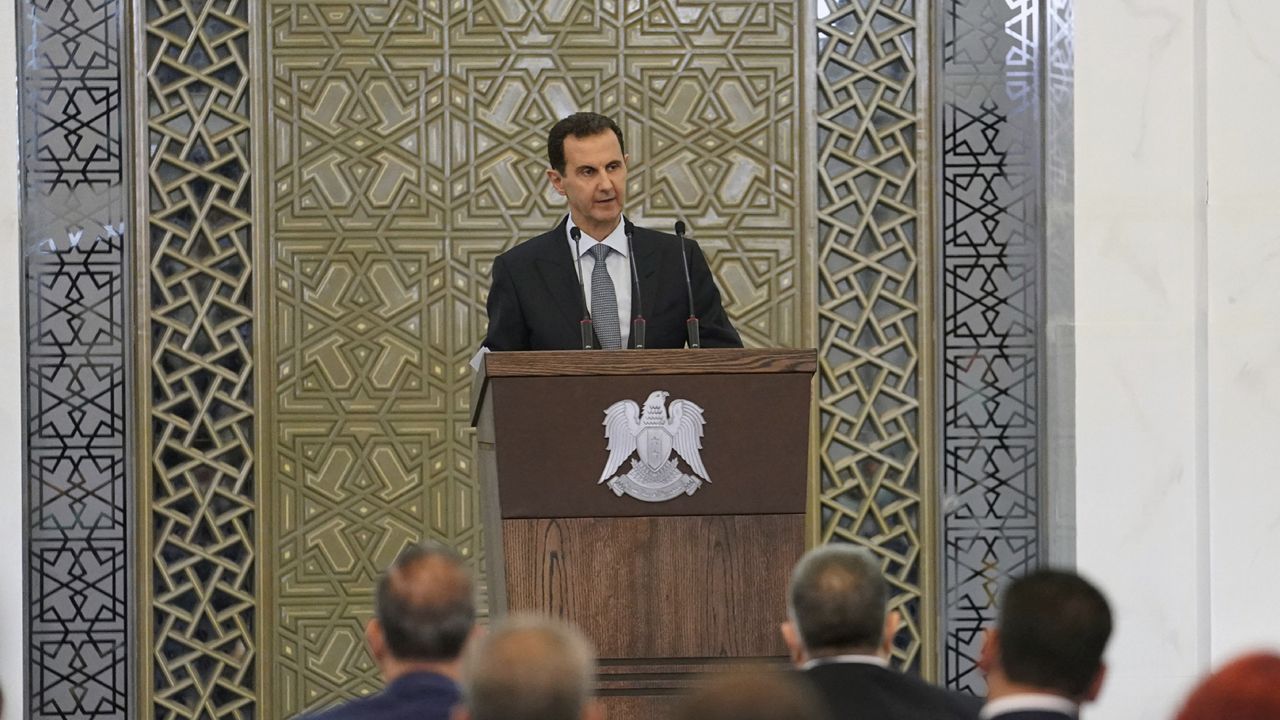WASHINGTON — The Trump administration on Tuesday announced more sanctions on Syria, intensifying pressure on President Bashar al-Assad to end the country’s vicious, nearly decade-long conflict.
The swath of new regulations target high-ranking government officials, Syrian infrastructure, and al-Assad’s wife’s family. Secretary of State Mike Pompeo wrote in a statement that the Trump administration is imposing sanctions on al-Assad’s wife, Asma al-Assad, “for impeding efforts to promote a political resolution of the Syrian conflict pursuant to Section 2(a)(i)(D) of Executive Order 13894.”
President Trump signed Executive Order 13894 into law on Oct. 14, 2019, which gave the State and Treasury Departments power to sanction Syria after finding the situation in the country “undermines the campaign to defeat the Islamic State of Iraq and Syria, or ISIS, endangers civilians, and further threatens to undermine the peace, security, and stability in the region, and thereby constitutes an unusual and extraordinary threat to the national security and foreign policy of the United States.”
“Asma al-Assad has spearheaded efforts on behalf of the regime to consolidate economic and political power, including by using her so-called charities and civil society organizations,” the State Department wrote of the new sanctions imposed Tuesday.
It is not the first time Asma al-Assad has been targeted by the U.S. government. In June, the State Department said 39 Syrian individuals, including Assad and his wife, had been designated for economic and travel sanctions. Others include members of the extended Assad family, senior military leaders and business executives. Many of those on the list were already subject to U.S. sanctions, but the penalties also target non-Syrians who do business with them.
On Tuesday, the State Department targeted Asma al-Assad’s extended family with sanctions, writing they “have accumulated their ill-gotten riches at the expense of the Syrian people through their control over an extensive, illicit network with links in Europe, the Gulf, and elsewhere.”
The Treasury Department also announced sanctions in coordination with the State Department on Tuesday, filing measures against several high-level government officials as well as the Central Bank of Syria (CBoS). While the bank had previously been sanctioned for operating under the Syrian government, Tuesday’s additional highlights the CBoS’ “deep banking ties to Iran, the world’s largest state sponsor of terrorism [...] CBoS has been an integral part of the regime’s efforts to increase public revenues and prop up the Syrian currency.”
The new sanctions from the treasury target individuals including Lina Mohammed Nazir al-Kinayeh, the Director of the Follow-Up Office in the Office of the Syrian Presidency; her husband Mohammed Hammam Mohammed Adnan Masouti, member of parliament in the Syrian People’s Assembly; as well as four corporations owned and operated by the couple.
The sanctions from the Treasury and State departments “prohibit all dealings by U.S. persons or within (or transiting) the United States that involve any property or interests in property of designated or otherwise blocked persons.”
Treasury Secretary Steven Mnuchin said the United States was intent on “holding accountable the Assad regime for the atrocities it has committed against its own people.”
“The Treasury Department will continue to use all of its tools to expose those who stand with the Assad regime and enable these crimes to continue,” Mnuchin said in a statement.
The State Department and other international governments and independent rights groups say Assad and his regime are responsible in the killings of hundreds of thousands of civilians through aerial bombing campaigns, torture, armed attacks, hunger and other targeted campaigns. The violence began when Assad’s fighters brutally quashed civilian protests at the time of the 2011 Arab Spring popular uprisings.
The Associated Press contributed to this report.



